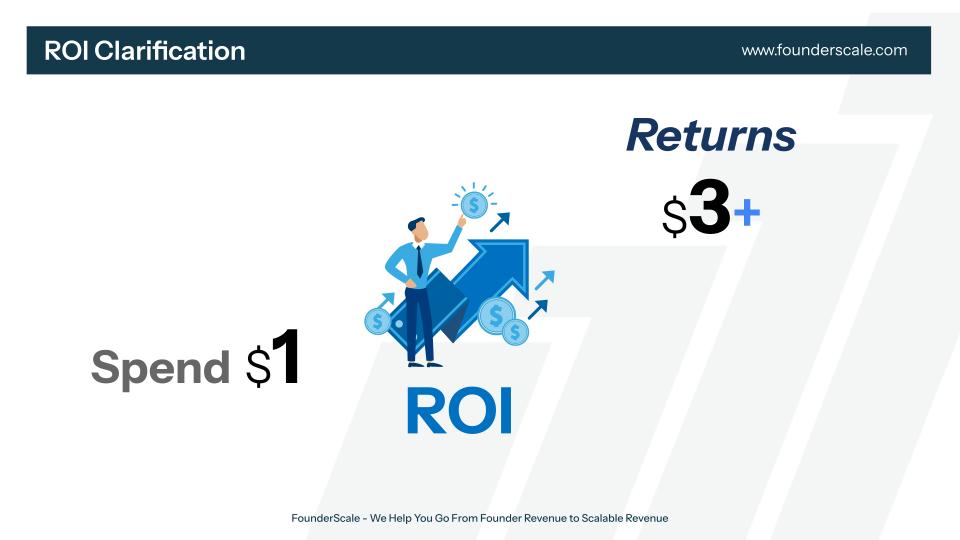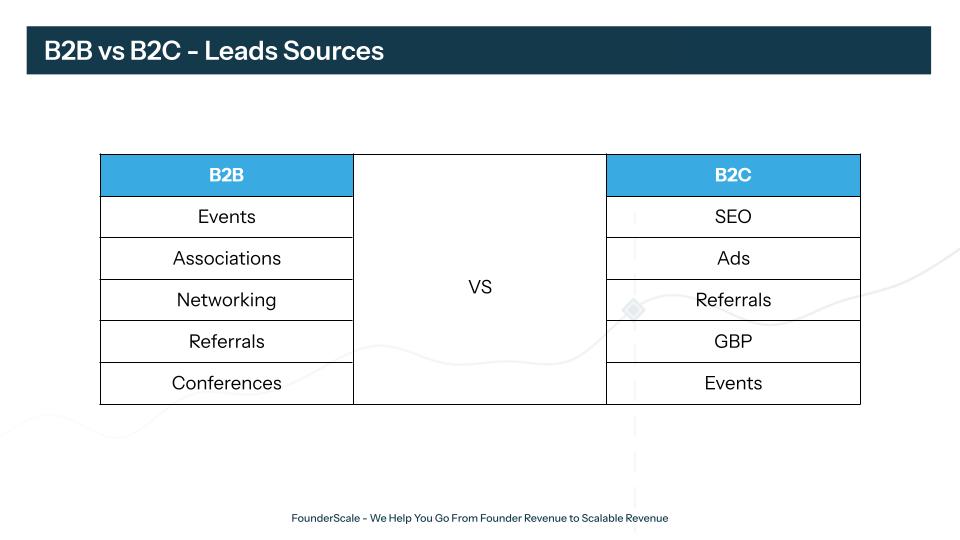As a business founder, expanding your business's reach through marketing might seem like an obvious step. You may think that hiring a marketing agency is the answer to scaling your company. However, it's crucial to have an understanding of how this decision can impact your business, particularly your return on investment (ROI).
Why Many Marketing Agency Investments Fail
Many founders face the dilemma of scaling their revenue without proper guidance and often jump straight into hiring an agency. This decision frequently leads to high costs with little to no returns. The expectation of outsourcing the whole marketing process to an agency can seem appealing, but the reality often doesn't align with the expectations. So why is that?
The primary issue is the gap in understanding specific marketing needs tailored to business types: B2B (business-to-business) and B2C (business-to-consumer). Marketing agencies may not always approach this distinction with the detailed understanding needed, which results in misaligned strategies and poor outcomes.
Understanding ROI in Marketing
ROI is a term tossed around frequently in the marketing world, but what does it mean in simple terms? ROI refers to the profitability ratio, a measure of the return gained from any investment relative to its cost. For a marketing investment to be considered successful, you should aim to get at least $3 back for every $1 spent.
Unfortunately, many marketing agencies fail to bridge the gap between B2B and B2C needs and apply a one-size-fits-all solution. Here lies the disconnect where agencies suggest SEO can fix everything, or they construct hefty strategies that encompass social media, ads, and public relations without catering them specifically to your business needs.

Are You a B2B or a B2C?
Determining whether your business is B2B or B2C is crucial when it comes to developing an effective marketing strategy. A B2B approach might work wonders for some, while B2C tailored campaigns may be the need for others. Here’s a quick breakdown:
B2B (Business-to-Business)
These companies offer services directly to other businesses. In this space, lead generation tends to be relationship-driven. Networking, referrals, conferences, and event participation are crucial pathways.
B2C (Business-to-Consumer)
Companies focusing on individual consumer needs usually rely on methods like SEO, online ads, Google Business profiles, and social media to gather leads. These leads typically turn into consumers quicker than in B2B contexts.
Marketing Strategy Essentials
Before jumping into hiring an agency, it’s essential to develop a clear understanding of your target audience and choose the best channel to reach them. Here are some tailored insights:
Effective B2B Marketing Practices
Marketing in the B2B realm often revolves around connecting and building relationships. It's not just about blasting content online; instead, it's about finding the right networks and communities that will drive long-term value.
Sales-driven approaches work better in B2B, where agencies or internal marketing efforts should complement these activities. This could be through developing materials that aid in nurturing client relationships or through targeted events that facilitate face-to-face interactions.
Successful B2C Marketing Tactics
In contrast, B2C marketing thrives on reaching a broad audience through digital channels. In this realm, marketing agencies should emphasize creating compelling content that appeals directly to your target audience. This includes leveraging SEO for organic reach, paid ads for targeted visibility, and social media for engaging directly with consumers.
Unlike B2B, B2C is heavily metrics-driven, focusing on conversion rates from numerous short-lived interactions. Agencies must deliver fast-paced, adaptable campaigns that speak to the immediate needs and desires of the consumer.

How to Effectively Collaborate with a Marketing Agency
Once you understand your business model and your audience, it’s critical to have a clear understanding of how to best use a marketing agency. Here are some key points to consider:
Set Clear Goals
Before onboarding a marketing agency, define clear goals for what you want to achieve. Are you looking to increase your brand presence, generate leads, or drive sales directly? Clarity in objectives not only helps in selecting the right agency but also aids them in crafting a strategy tailored to your goals.
Understand Their Expertise
Not all marketing agencies are created equal. Ensure the agency you hire specializes or has significant experience in your specific business model, be it B2B or B2C. Ask them to present case studies, previous work or references in your field to back up their capability claims.
Communication is Key
Establish an open line of communication and regular check-ins to align on strategy, campaigns, and metrics results. Transparent dialogue helps to adjust strategies effectively as per the ongoing business needs and market changes.
Evaluate Their Proposed Strategies
An efficient marketing agency should provide a comprehensive strategy proposal, showcasing how they plan to utilize your budget for the best ROI. Examine how these strategies align with your company’s vision and objectives. If something doesn’t align or make sense, don’t hesitate to ask for clarification or suggest changes.
Monitoring and Adjustments
After hiring an agency, ensure that they are actively reviewing performance metrics. Regular evaluations help refine strategies ensuring that you’re always on the path to achieving your goals.
Metric Tracking
Work with your agency to establish a clear set of KPIs (Key Performance Indicators) that align with your goals. These might include website traffic, conversion rates, or ad click-through rates, among others. Regular reports should track these metrics and provide insights into both successes and areas for improvement.
Flexibility in Strategy
The digital marketing landscape is dynamic and ever-evolving. It’s important that your agency exhibits flexibility in their strategy to accommodate changing markets, new trends, and emerging technologies, always aiming to optimize ROI.
Take Charge of Your Marketing Journey
Choosing to bring in a marketing agency can significantly benefit your business, but it should not be a decision made lightly. With well-defined goals, an understanding of your business needs, and a clear strategy in place, your organization is likely to see the desired returns on your marketing investments.
Ultimately, empowering yourself with this knowledge will make your transition smooth and beneficial, allowing your business to grow sustainably. Before signing any contracts, ensure the agency understands your goals and shares a roadmap to success. By putting these ideas into practice, you’ll not only save money but drive effective growth through marketing.
Follow along on our YouTube Channel for more insights and strategies on how you can scale your revenue effectively.



